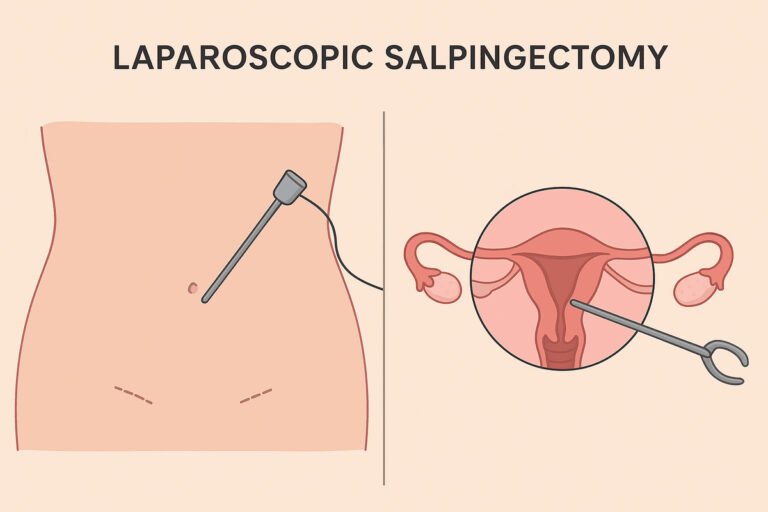Introduction
Many expectant moms find the road to pregnancy to be exciting but also stressful. For individuals who have suffered loss before, the dread of miscarriage may be particularly crippling. Might progesterone supplement pregnancy support be the secret to a better, safer pregnancy? Studies indicate that low progesterone levels in early pregnancy may cause repeated losses, therefore supplementation might be a possible lifeline. Women with a history of preterm labour or those undergoing IVF or other reproductive treatments may seek progesterone medication to increase their likelihood of bringing a child to term. Knowing the function of this vital hormone and how supplements operate might help one to distinguish between hope and sadness.
What Is Progesterone?
Produced mostly by the corpus luteum in the ovaries during the early stages of pregnancy, progesterone is subsequently generated by the placenta. Its function in preserving a good pregnancy is unique. This hormone thickens the uterine lining, therefore producing a nurturing environment for the embryo to implant and develop. Progesterone also stops uterine contractions that would start early labour and helps the placenta grow, so guaranteeing your baby’s access to vital oxygen and nutrients. Insufficient progesterone raises the likelihood of implantation failure, premature delivery, or miscarriage. Progesterone supplementation might be a vital step advised by fertility experts for women with infertility or recurrent pregnancy loss.
Who Might Need Progesterone Supplements?
While certain situations call for them, not every pregnant woman need progesterone pills. Women with a history of recurrent miscarriages two or more often have low progesterone levels, which makes them ideal candidates for supplementation. Progesterone support is common for those using assisted reproductive technologies IVF or IUI to improve embryo implantation. Progesterone treatment may also help women with short cervix or incompetent cervix to lower the chance of premature birth. Doctors often also recommend progesterone for women with luteal phase abnormalities, a disorder in which the body produces insufficient progesterone after ovulation, or for those with early pregnancy hemorrhage. Should you have had pregnancy issues in the past, talking about progesterone testing and therapy possibilities with your OB-GYN might be really vital for a good pregnancy.
Also Read : Best Essential Oil For Pregnancy
The Science Behind Progesterone Supplements
Studies on progesterone supplementation during pregnancy have shown varied but encouraging outcomes. A 2019 Cochrane review of many trials indicated that women with a history of recurrent pregnancy loss might benefit from progesterone treatment to lower their risk of miscarriage. The landmark PRISM study (2019) confirmed this even further by showing a 5% rise in live birth rates for women with prior miscarriages who had early pregnancy hemorrhage. Not all research, however, agree; some say progesterone helps only women with verified low progesterone levels; others find no effect on singleton pregnancy preterm birth prevention. Many fertility specialists advocate progesterone assistance for high-risk pregnancies in spite of contradictory research, stressing individualized treatment. Should you be thinking about progesterone, go to your doctor to go over the most recent evidence-based advice and clinical guidelines.
How Are Progesterone Supplements Taken?
There are several kinds of progesterone supplements, each having its advantages and disadvantages. The most frequent are vaginal suppositories or gels, which provide progesterone straight to the uterus with least systemic adverse effects. They could, however, create vaginal discharge or inflammation, which might be unpleasant. Though they are less efficient as the liver metabolizes much of the hormone before it enters the circulation, oral progesterone tablets provide convenience. Oral usage also causes tiredness or dizziness for some women. Doctors could recommend progesterone injections—intramuscular progesterone—for high-risk patients since they provide significant hormonal support but need for regular, often uncomfortable treatments. Micronized progesterone (Prometrium), a bioidentical hormone that may be taken orally or vaginally, is another choice. Your medical history and pregnancy requirements will help your doctor decide the optimum progesterone administration system.
Potential Risks & Side Effects
Though they could have adverse effects, progesterone supplements are usually regarded as safe. Common problems include weariness, bloating, breast sensitivity, and mood changes that reflect premenstrual symptoms. Especially with oral progesterone, some women have headaches or dizziness. The oily foundation of vaginal suppositories might cause local discomfort or yeast infections. Especially with synthetic progestins, more significant but uncommon hazards include blood clots, allergic responses, or liver impairment (not usually used in pregnancy). Before beginning therapy, you should talk to your doctor about any history of blood clots, liver problems, or hormone-sensitive maligns. During pregnancy, most professionals believe natural progesterone (micronized progesterone) is safer than synthetic equivalents. Always keep an eye out for odd symptoms and tell your doctor right away.
Natural Ways to Support Progesterone Levels
Some lifestyle and dietary modifications might help increase progesterone naturally before or during progesterone treatment. Eating zinc sources (pumpkin seeds, beef, lentils) and vitamin B6-rich meals (chickpeas, salmon, bananas) helps hormone generation. High cortisol levels might decrease progesterone, hence controlling stress by means of yoga, meditation, or deep breathing is essential. Though it should only be taken under medical supervision, some women utilize Vitex (Chasteberry), a herbal supplement said to raise luteal phase progesterone. Hormonal equilibrium is also helped by avoiding endocrine disruptors—such as BPA in plastics—and keeping a healthy weight. Although these techniques could be useful, if levels are critically low they cannot take the place of medical progesterone treatment. Before altering your pregnant health routine significantly, always check with your doctor.
The Emotional Toll
Pregnancy may be an emotional rollercoaster for those who have experienced infertility or repeated losses. Using progesterone pills may sometimes bring both optimism and worry. One mother said, “Progesterone gave my body the support it needed after three losses.” When I finally held my kid, every shot was justified. Tales like this underline the psychological effects of pregnancy difficulties and the solace that good therapy may provide. The emotional burden of high-risk pregnancies may be managed by support groups, therapy, and frank discussions with medical professionals. Many women have travelled this road and achieved success with the appropriate treatments if you are on this route; you are not alone.
Conclusion
Progesterone supplements could be a game-changer if you suffer with low progesterone, recurrent miscarriages, or high-risk pregnancy concerns. Still, it’s not a universal remedy. Among the main actions are:
- Getting tailored counsel from an OB-GYN or fertility expert
- If you have a history of pregnancy loss, testing progesterone levels.
- Considering the advantages against the hazards depending on your medical past
Every pregnancy is different, but with the appropriate support—whether via progesterone treatment, lifestyle adjustments, or mental care your hope of a healthy baby might be within reach.





[…] Also read: Progesterone Supplements During Pregnancy: How They Help Support a Healthy Baby […]